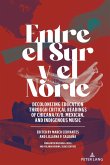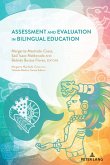Entre el Sur y el Norte highlights an important social problem within our education systems, which continue to rely on colonial models for teaching and learning. While scholars have offered critiques of schools as sites of social reproduction and schools as sites of educational inequality for students of color, few have examined the ways in which schools in the United States continue to promote colonial models of teaching and learning. This is particularly important given contemporary discourses of academic success that promote inclusion, diversity, and multiculturalism-practices that are often framed within colonial perspectives of the "other." This book examines music as a site of anti-colonial resistance and decolonial praxis in schools.
Grounded on the premise that education is a political act, the authors draw from creative forms and styles that problematize what decolonial scholars call the "colonial matrix of power" in shaping the Latino subaltern experience. Using music as a political and aesthetic expression against empire, the authors argue that the study of Latinx musical forms offers students possibilities to critique and delink from coloniality in their everyday lives.
Committed to decoloniality as a political, epistemological, and spiritual project, the authors are intent on creating spaces that value transcultural understanding and solidarity between and across subaltern peoples of the Global North and the Global South, with particular attention to Chicanas and Chicanos and Latinas and Latinos in the United States and other peoples in the hemisphere. Musical forms provide ways to critically explore and engage in decolonial horizons that break silences, disrupt dominant narratives, and create a transformative consciousness among our students, particularly around issues of economic globalization, immigrant rights, cultural resistance, ethnic relations, poverty, and educational inequality in the Americas.
Grounded on the premise that education is a political act, the authors draw from creative forms and styles that problematize what decolonial scholars call the "colonial matrix of power" in shaping the Latino subaltern experience. Using music as a political and aesthetic expression against empire, the authors argue that the study of Latinx musical forms offers students possibilities to critique and delink from coloniality in their everyday lives.
Committed to decoloniality as a political, epistemological, and spiritual project, the authors are intent on creating spaces that value transcultural understanding and solidarity between and across subaltern peoples of the Global North and the Global South, with particular attention to Chicanas and Chicanos and Latinas and Latinos in the United States and other peoples in the hemisphere. Musical forms provide ways to critically explore and engage in decolonial horizons that break silences, disrupt dominant narratives, and create a transformative consciousness among our students, particularly around issues of economic globalization, immigrant rights, cultural resistance, ethnic relations, poverty, and educational inequality in the Americas.








